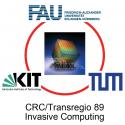12.1 Special Day on "Model-Based Design of Intelligent Systems" Session: MBD of Safe and Secure Systems
Date: Thursday 28 March 2019
Time: 16:00 - 17:30
Location / Room: Room 1
Chair:
Frédéric Mallet, Université Nice Sophia Antipolis, FR
Co-Chair:
Marc Geilen, Eindhoven University of Technology, NL
| Time | Label | Presentation Title Authors |
|---|---|---|
| 16:00 | 12.1.1 | SEMANTIC INTEGRATION PLATFORM FOR CYBER-PHYSICAL SYSTEM DESIGN Speaker: Qishen Zhang, Institute for Software Integrated Systems Vanderbilt University, US Authors: Qishen Zhang, Ted Bapty, Tamas Kecskes and Janos Sztipanovits, Vanderbilt University, US Abstract Cyber-Physical Systems (CPS) are establishing heterogeneous engineering domains leading to engineering processes that span multiple design disciplines with separate modeling approaches, design flows and supporting tool suites. One of the challenges of design automation in CPS is the deep integration of models, tools and design flows such that design trade-offs across traditionally isolated design disciplines is facilitated. In this paper we overview experience and results gained along the implementation of an experimental design automation tool suite, OpenMETA, created for a complex CPS design challenge in the ground vehicle domain. The focus of the paper is domain agnostic methods and tools providing infrastructure for the model- and tool- integration platforms in OpenMETA. We present the arguments leading to the creation of the integration platforms instead of pursuing ad-hoc integration of heterogeneous tools and provide details on facilitating semantic integration. Download Paper (PDF; Only available from the DATE venue WiFi) |
| 16:30 | 12.1.2 | WORST-CASE CAUSE-EFFECT REACTION LATENCY IN SYSTEMS WITH NON-BLOCKING COMMUNICATION Speaker: Yi Wang, Uppsala University, SE Authors: Jakaria Abdullah, Gaoyang Dai and Yi Wang, Uppsala University, SE Abstract In real-time embedded systems, a system function- ality is often implemented using a data-flow chain over a set of communicating tasks. A critical non-functional requirement in such systems is to restrict the amount of time, i.e. cause- effect latency, for an input to impact its corresponding output. The problem of estimating the worst-case cause-effect latency is well-studied in the context of blocking inter-task communication. Recent research results show that non-blocking communication preserving functional semantics is critical for the model-based design of dynamically updatable systems. In this paper, we study the worst-case cause-effect reaction latency estimation problem in the context of non-blocking inter-task communication. We present a computationally efficient algorithm that tightly over- approximates the exact worst-case reaction latency in cause-effect data-flow chains. Download Paper (PDF; Only available from the DATE venue WiFi) |
| 17:00 | 12.1.3 | HARMONIZING SAFETY, SECURITY AND PERFORMANCE REQUIREMENTS IN EMBEDDED SYSTEMS Speaker: Ludovic Apvrille, LTCI, Télécom ParisTech, Université Paris-Saclay, FR Authors: Ludovic Apvrille and Letitia Li, Telecom ParisTech, FR Abstract Connected embedded systems have added new con- veniences and safety measures to our daily lives -monitoring, automation, entertainment, etc-, but many of them interact with their users in ways where flaws will have grave impacts on personal health, property, privacy, etc, such as systems in the domains of healthcare, automotives, avionics, and other personal devices with access to sensitive information. Designing these systems with a comprehensive model-driven design process, from requirement elicitation to iterative design, can help detect issues, or incongruities within the requirements themselves earlier. This paper discusses how safety, security, and performance require- ments should be assured with a systematic design process, and how these properties can support or conflict with each other as detected during the verification process. Download Paper (PDF; Only available from the DATE venue WiFi) |
| 17:30 | End of session | |















